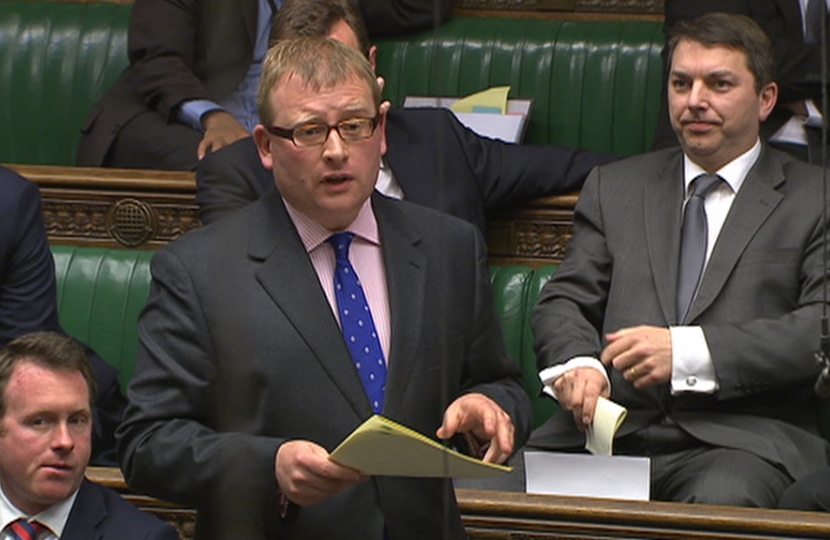
Marcus Jones, Nuneaton’s Member of Parliament, was in the House of Commons on Thursday 29 August following the Prime Minister’s decision to recall MPs to debate the chemical weapons attack in Syria, and the UK’s response to it, in the Commons.
The MP described the chemical weapons attacks as an ‘atrocity’ which he ‘deplored in the strongest possible terms.’
MPs voted against both the Government motion and the Opposition’s motion, which shared a number of similarities. The Leader of the Opposition, Ed Miliband, has since been accused of trying to score political points rather than acting in the national interest. The Government’s motion, which lost by a small majority of 13 MPs, has indicated to the Prime Minister that the British Parliament – reflecting the views of the British people – does not support British military action in Syria, despite the seriousness of the use of chemical weapons against civilian populations.
Prior to the vote, there was still uncertainty about who launched the chemical weapons attack, but the US Government had ‘concluded’ that only the Syrian regime, led by President Assad, had the capabilities needed to use the weapons. This is denied by the Syrian Government and is subject to a UN assessment.
Commenting on the vote, Marcus said: “The chemical weapons attacks in Syria are an atrocity and I deplore them in the strongest possible terms. I think and hope that we are all united on that. There can be no place for using such weapons.
“What was most disappointing about the vote and the lead up to the debate yesterday was the manner in which the Opposition conducted themselves. The Prime Minister made a number of concessions to accommodate the concerns of Labour MPs and yet Ed Miliband chose to try and score cheap party political points rather than act in the national interest. His position was so confusing that I don’t think even his own MPs fully understood it.
“The use of chemical weapons against civilians is a serious matter and how we respond as a country was vitally important. It should be noted that the Prime Minister could have used Royal Prerogative powers to intervene but chose instead to listen to Parliament. That is to be wholly commended.
“Throughout the lead up to the debate and the vote, I examined my conscience and thought very seriously about how to cast my vote as Nuneaton’s representative in Parliament. I take that responsibility very seriously, as local people would expect.
“For that reason, at the time I had to make a judgment call and cast my vote, I opted to support the Government’s motion. I did so because this would have allowed the British Government to continue with investigations through the United Nations process. It would also have ensured that the House of Commons would have been able to debate, and, importantly, vote, on a more significant military intervention. The alternative would have been to vote against both motions, but this did not give the guarantees I was seeking.
“I believe strongly that lessons should be learned from past foreign policy decisions, namely Iraq. I made it clear to the Government before the vote that I would need to seriously consider any proposal for military intervention. I explained that I was worried about mission creep in Syria and, finally, that I would require the backing of the UN for any UK military involvement to achieve my support in Parliament.
“I think it is right and proper that I explain how I voted to the people of Nuneaton and I hope I have done so. For me, given the options on the table at the time of the vote, the approach I took would have provided us with the greatest safeguard that no UK forces could be used in Syria without a further vote in Parliament. This now seems unlikely given the outcome of the vote but we should seriously consider the foreign policy implications for the UK and we must continue to apply as much pressure as possible to the Syrian regime to protect innocent civilians in the country from being gassed and murdered in such a horrific manner.”



